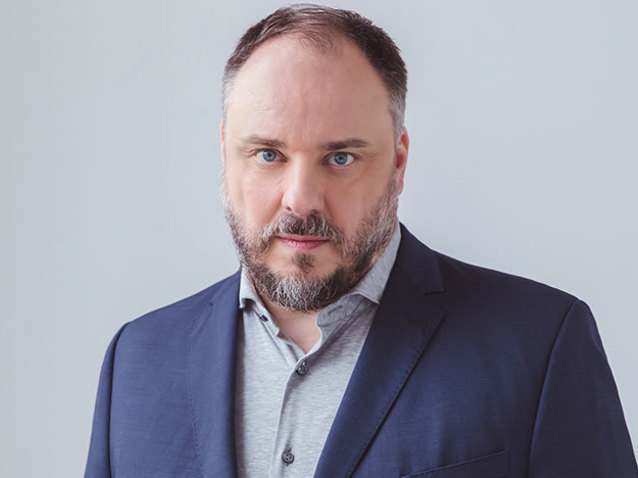 © dr
© dr
One of the best lieder singers in the world, baritone Matthias Goerne came back to the Verbier Festival this year for a Winterreise performance with pianist Nikolai Lugansky and a concert of Schubert lieder with the Verbier Festival Chamber Orchestra. He has performed Shostakovich’s symphonies, Bartók’s Bluebeard’s Castle, or Britten’s War Requiem in the last few years, and he is making his Boris Godunov debut in 2023, but German has been his performances’ main language. He explains why Schubert inspires endless creativity and how the text can change the world.
***
You have performed Winterreise almost 300 times. What new perspectives can you find in the music?
I would say Winterreise and Beethoven’s Ninth Symphony are the most touching pieces for humankind because of the text, which makes them very concrete. It is impossible to discover something in the music or isolate it from the entire idea and dramaturgy of Winterreise. The Winterreise cycle puts a simple human being at the centre. Anyone can identify to him. The piece is about being unloved or in love, losing and finding, nurturing a desire deep inside, and being absolutely lonely. The character gets more and more confused by trying, unsuccessfully, to have contact with the world. You can never completely know a human being; you always discover a new layer. This is what makes Winterreise endless for interpretation across the world. There is absolutely no routine. From the first note, you are immediately immersed, and you can find correspondence with what you are experiencing in your life. There is no shell around it. You touch its centre directly.
Schubert was 29-30 years old when he composed Winterreise. He kind of projected himself into someone older. Is there any youth in the composition?
I would not say there is youth in Winterreise. It is completely timeless. The cycle is about someone so troubled and lonely that he needs to escape. He is starting to think about his past years, feeling like this is the only way to obtain a better future. This reflection ends with Der Leiermann, which many people assume signals the coming death. On the contrary, it is the first human being he is actually or potentially in contact within Winterreise, so there is a big question mark at the end. It implies hope. There is this tiny little light at the end of the tunnel. It is typical of Schubert that he never has a completely negative song. There is also the ‘Irrlicht’: you think this is a life form in reality, but it is only a reflection of nature. You are attracted by this light, thinking that someone is ready to welcome you, but in fact you are still alone in the middle of the night.
How do you cope with the different imaginary characters depicted in Winterreise?
During the performance, there is no way to think about it because there is always a percentage that you have to control. The different sights from the same person become very much personalised. I always try to find a correspondence between what the text, the story and the music ask for and find it in myself.
How do you work with new pianists such as Nikolai Lugansky?
I think most of the time it is better not to talk about music but just make music. What is most important is to do what you think you need to do, and hopefully, this is quite close to what your partner wants to do. Then it becomes synchronised because you both have the same feelings, and when it's too distant from each other then you have to talk about it.
How different is it to perform lieder with a pianist or with an orchestra?
Soundwise, it is completely different. For some pieces, it is also more interesting than with just a piano. The difference is for sure that you have this kind of spontaneous flexibility with the piano. Lieder with an orchestra require more patience, more rehearsals: you have to translate a beautiful, intimate music language into a new form with six different groups of instruments and make the sound travel through the orchestra.
But the colours of the lieder also depend on the arrangements, right?
Yes, for sure. At tomorrow’s concert, I sing one Brahms arrangement of Im Abendrot. This is a tricky song because of its soft and long lines. Brahms orchestrations generally sound good, but they are not comfortable compared to the original piano version. I always have the feeling they are, in a way, over-orchestrated. It can become too heavy and too complex and move away from the original idea of the song. Instead of piano, you can have mezzo-forte immediately, and instead of mezzo-forte, you can have fortissimo at the end. This is a difficult balance to find with the orchestra.
You have performed a lot in your own language, German. Do you feel that it's more about being comfortable or more about being true to the feelings?
Your mother language defines who you are and what you can do. I was lucky to be born in the right country to perform the German lieder repertoire, but I would never go to a French-speaking country and start singing Debussy, Ravel or Poulenc, because I know that the audience could not be satisfied. Only the singers who have high knowledge of the language can reach something really high in lieder singing. You need to start living in a country if you really want to sing this repertoire, then study the language until you are able to read all kinds of literature, and you may eventually have a chance to make it to a very high level. Otherwise, it is really hard.
Do you prefer performing in opera or in the lied repertoire?
When you have a very good production and a great piece it is wonderful to do opera, but it all depends on the stage director, conductor, and other singers. If the team is not so good, then I would rather have a recital. A recital with piano is easier to organise, I know exactly what I want to do with the pianist, and I can create a programme that I like. You cannot get satisfaction from a half well-organised opera with temperate singers, and maybe a difficult conductor. Sometimes the stage is so bad that I regret having said yes …
Do you plan to sing Schubert’s operas?
I would have loved to sing a Schubert opera, but opera was really not his subject. For me, Fierrabras and Alfonso und Estrella do not work because I absolutely miss the theatre and tension in them. There are wonderful lines, but it sounds like a never-ending Schubert song.
Do you have any dreams for the future?
I will not sing for 20 more years so I would say health, good friends and good company. Without good health, you can do nothing. When it is there, you can put all the energy into what you really want to do.
Interview by Thibault Vicq (30 July 2021)
the 01 of September, 2021 | Print



Comments